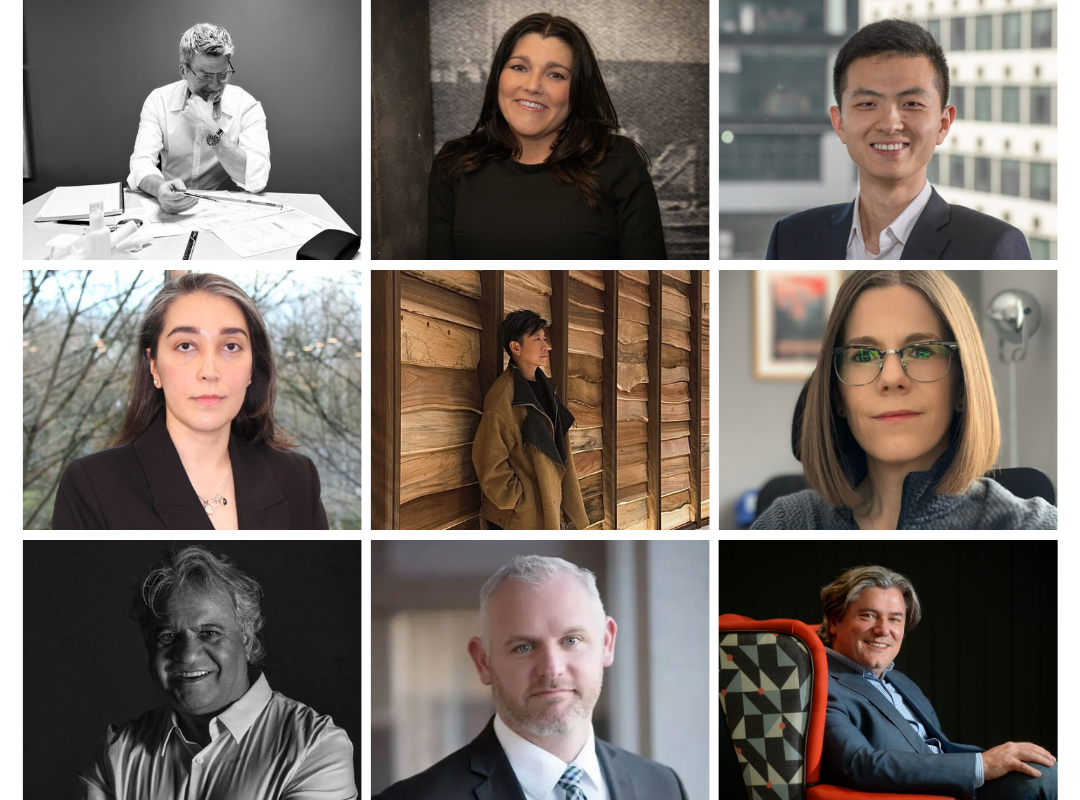The year is 2025. AI has officially ceased to be the stuff of science fiction and is now woven into the very fabric of our daily routines. From waking up to alarms that adapt to our sleep cycles and smart fridges that replenish pantry staples automatically, these technologies are reshaping the way we interact with the world.
This collection of expert perspectives brings together voices from across industries to explore how AI is set to evolve in the year ahead.
Their insights illuminate not only the practical applications transforming businesses and homes but also the ethical, environmental and human-centred design considerations that will determine whether AI remains a force for empowerment or risks overshadowing what makes us uniquely human.
Contributors featured in this article:
Jiaxi Zhu, Head of Insights & Analytics, Google
Nicky Hoyland, Chief Innovation Officer, The Auspicious Group
Steven Rodemer, Founder, The Law Offices of Rodemer and Kane
Ravi Sawhney, Founder, RKS Design (creator of Psycho-Aesthetics®)
Tracy Heatley, Chartered Marketer and CIM-certified AI Expert
Jasmine Sayyari, CEO & Founder, New Generation Network and Chanci AI
Steve Harding, CEO & Founder, Showerkap
James Huang, CEO, Mercury Technology Solution
Pete Hanlon, CTO, Moneypenny

Jiaxi Zhu, Head of Insights & Analytics, Google
"AI is rapidly transforming business forecasting to make it more accurate and sensitive than ever before. The complexity and sheer size of data in contemporary business render older methods impractical. AI-powered models, however, can filter through large sets of data, identify patterns, and predict future trends with breathtaking precision. It is especially effective in high-speed businesses where market conditions can change radically.
One of the greatest advantages of AI in forecasting is that it is adaptive. With static models, manual adjustments have to be made, but with AI algorithms, they learn from new data that is continuously being provided to them, and their predictions become more accurate with time. This adaptability is crucial for businesses dealing in volatile markets because they can make informed choices even when they are uncertain.
For example, the retail industry is using AI to forecast demand for specific products, optimize stock levels, and reduce waste. In the financial industry, AI is being used to forecast market trends and gauge risk, enabling more conservative investment. These real-life examples indicate the tangible benefits of AI in forecasting but also the importance of sound data governance principles.
To ensure AI in predictive analytics is reliable and ethically applied, businesses must prioritise data quality, transparency, and accountability. This means integrating strong data governance policies, having transparent guidelines for AI development and deployment, and continually monitoring AI performance for possible biases and taking corrective measures.
In a nutshell, AI is making business forecasting smarter, more accurate, and more flexible. To realise all the value from AI, however, firms also have to invest in responsible data governance frameworks that promote ethical usage."

Nicky Hoyland, Chief Innovation Officer, The Auspicious Group
Website: www.thisisauspicious.com/
The conversation around artificial intelligence is shifting from hypothetical futures to practical reality. In 2025, we’re seeing emerging AI systems not just execute tasks but actively enhance how we work, learn, and live.
AI’s most profound impact may be its power to democratise essential services. Imagine every child accessing personalised education or everyone having a skilled healthcare advisor in their pocket.
The immediate horizon reveals AI assistants evolving beyond basic automation into genuine collaboration tools. These systems are beginning to understand context and nuance. Dating apps now develop AI ‘concierges’ based on genuine compatibility rather than surface preferences, while healthcare providers use AI to detect patterns in daily routines and vital signs, preventing issues before they become serious.
Perhaps most significantly, we’re seeing the rise of agentic AI: autonomous systems that can work together without human intervention. AI agents will run seamlessly in the background of our daily lives, making decisions and exchanging information with each other. Calendar systems will negotiate meetings considering availability, productivity patterns, and energy levels. Your banking AI will communicate with shopping assistants, exchanging real-time spending and financial data to guide smarter purchasing decisions.
The future of AI isn’t about replacement but augmentation. As AI matures, it’s not diminishing human capabilities but expanding them. The next few years will redefine our understanding of productivity and creativity, emphasising the irreplaceable nature of human insight and connection.
Successful navigation of this evolution lies in maintaining intentionality. As AI becomes more capable, the focus shifts to ensuring these tools enhance rather than overshadow our fundamental human characteristics. This balance will define the next phase of our technological development.

Steven Rodemer, Founder, The Law Offices of Rodemer and Kane
Website: https://coloradospringscriminaldefense.net/
In my daily life as a business and law firm owner, I’ve seen firsthand how AI can revolutionise efficiency and client service. Take the legal field: AI tools like contract reviewers, legal issue researchers, and document drafters do much more than save time; they also cut down on costs. This efficiency shift allows lawyers like me to focus deeply on strategic decisions and nurturing client relationships.
AI also boosts our customer service by providing 24/7 assistance via chatbots and virtual assistants, and by using predictive analytics to deeply understand and foresee client needs, customizing our approach to each individual.
Looking ahead, AI is poised to become even more entwined with our lives. I imagine AI legal assistants taking on simple legal cases, and self-driving cars transforming our commutes. My focus, alongside the broader industry, remains on advocating for ethical AI practices and ensuring there is human oversight where it matters most, particularly in fields like law, healthcare, and security.
AI isn’t here to replace us. My aim is to use AI to enhance how we work while maintaining a high standard of personal interaction and service.
For any feedback or comments, or if you would like to be featured, please contact us at hello@thetechnational.com

Ravi Sawhney, Founder, RKS Design (creator of Psycho-Aesthetics®)
Website: https://rksdesign.com/
Artificial Intelligence is no longer a futuristic concept—it’s woven into the fabric of our daily lives, influencing how we work, connect, and experience the world. But the real question isn’t just what AI can do—it’s how we ensure it enhances human experiences rather than replacing them.
As someone who helped design early touch interfaces at Xerox PARC, I see a similar moment unfolding today. Just as the graphical user interface (GUI) once transformed personal computing by making it more intuitive, AI has the potential to redefine how we interact with technology—if we get it right.
The most successful AI will be the kind that doesn’t feel like AI at all. Think of how autocorrect refines our messages or how streaming services recommend content—these systems work because they understand human preferences and adapt seamlessly.
Looking ahead, AI will continue to integrate more subtly into our routines:
Personalised wellness and mental health support – AI-driven assistants will offer meaningful insights based on our habits.
Hyper-customised shopping experiences – AI will evolve into a true shopping assistant, guiding informed choices.
AI-driven creative collaboration – Serving as a tool for ideation in design, music, and writing rather than automation.
Designing AI for humanity, not just efficiency, is key. At RKS Design, we’ve found that adoption thrives when technology mirrors human behaviours and emotions. The companies that prioritise intuitive, trust-driven interactions will define the next decade of innovation. We’re at an inflection point: AI will either enhance human potential or replace human agency. Our responsibility is to shape AI in a way that empowers people rather than making them passive users.

Tracy Heatley, Chartered Marketer and CIM-certified AI Expert
Website: https://www.tracyheatley.com/
As artificial intelligence weaves its intricate web through daily life, its impact on consumer behaviour and marketing strategies is becoming increasingly profound. From algorithms that predict shopping habits to chatbots that provide seamless customer service, AI is fundamentally revolutionising the way brands engage with their customers.
Marketing has always been customer-orientated. AI now gives us the ability to analyse customer data quicker and easier than ever before. From product recommendations and personalised advertising to predictive analytics, brands can home in on what makes customers tick and run precision targeted marketing campaigns. This means businesses can adapt strategies to leverage AI for market analysis, customer segmentation, and messaging that resonate more than ever, influencing buyer behaviour and boosting sales.
However, over-reliance on AI can make interactions feel impersonal. Brands risk alienating customers if they lose the human touch. Ethical considerations must never be ignored. Businesses should incorporate AI in marketing, but never lose sight of its limitations. Expert validation is still required, and legal privacy elements must be considered. A balance between personalisation and intrusion is essential.
AI is developing at a rapid pace and will continue to transform customer interactions. Voice and visual search adaptations will grow, augmented reality shopping will expand, and AI will become better at mimicking human emotion. I predict that marketing roles will evolve into Predictive Programming Engineers or AI Validators. Fundamentally, marketing and brand interactions have changed forever. Businesses that don’t embrace AI will struggle to compete, but ethical human intelligence must remain at the core of any AI strategy.

Jasmine Sayyari, CEO & Founder, New Generation Network and Chanci AI
Website: https://www.ukngn.com/
The UK Government chose not to sign the AI safety agreement and has been accused of following the US in its decision-making. Jasmine Sayyari, CEO and Founder of New Generation Network and Chanci AI, offers her expert commentary on what this means for the future of AI in the UK:
“The Government insists the choice is based on national interest rather than US influence, aiming to balance opportunity and security. Initiatives like the AI Opportunities Action Plan, the £82.6 million Research Ventures Catalyst Programme, and the £7 million BridgeAI Programme, along with ‘AI Growth Zones’ for data centres and tech hubs, are designed to position the UK as a global AI leader. Signing the agreement could slow these efforts and add complexity.
“However, not signing removes the UK from a leadership role in AI safety, pushing critical topics—tech giant monopolies, public safety, and developer accountability—into the background. Rapid policy shifts add confusion and cost for UK companies, which may be detrimental long-term.”
For any feedback or comments, or if you would like to be featured, please contact us at hello@thetechnational.com

Steve Harding, CEO & Founder, Showerkap
Website: https://www.showerkap.co.uk/
AI in Everyday Life: Why Sustainable Tech Will Shape The Next Wave of Innovation
I find the rapid evolution of AI fascinating, albeit with the necessary checks and regulation in place, but I also believe sustainability must define the next era of AI development because we all rely on our planet’s resources to survive. While productivity gains and automation remain dominant narratives, 2025 is the year when green innovation must move from the sidelines to become front and centre of AI discussions.
The environmental cost of AI is no longer hypothetical. Deep learning has a huge carbon footprint: a single AI model can emit as much carbon as five cars in their lifetimes. Power-hungry data centres, often running 24/7, now account for an estimated 1–1.5 % of global electricity use. At Showerkap, we collate and share only essential telemetry with the cloud, minimising our water and carbon footprints.
The tech industry has a unique opportunity to make AI part of the solution. Trends already underway include UK startups like Open Climate Fix, which uses machine learning to predict solar energy generation, and major cloud providers integrating carbon-aware computing—automatically scheduling workloads based on grid emissions intensity. These are early signals of an AI paradigm that prioritises sustainability.
The most valuable AI tools in the next five years will manage and reduce waste, track biodiversity loss, and monitor climate risks in real time. However, we must also tackle AI’s own footprint by designing leaner models, advancing edge computing, and enforcing transparency in energy usage across the AI lifecycle.
If the UK wants to remain a global AI leader, it must also lead in green AI. Our brightest minds already ask, “What should AI do in a world facing a climate emergency?”

James Huang, CEO, Mercury Technology Solution
Website: https://mtsoln.com/
In late March 2025, several clients of Mercury Technology Solution experienced a significant decline in organic growth due to changes in AI-driven search behaviours (LLM SEO, GAIO, AEO). With no established industry standards, many organisations were caught unprepared.
My team implemented a comprehensive strategy, beginning with our own site (mtsoln.com). We rebuilt our content approach, recognising that traditional keyword tactics no longer suffice for LLM-powered search. Our workflow now prioritises human-focused content while enhancing E-E-A-T (Experience, Expertise, Authoritativeness, Trustworthiness) signals. Details are available here.
The results were compelling. Within two weeks, our impression rate doubled from 1.5 K to 3 K. On 19 May 2025—coinciding with Google’s AI Overview launch in Hong Kong—impressions surged another 200%, reaching nearly 9K.
This case underscores that AI’s power lies not just in automation but in rapid adoption and skilled execution. Agility and the ability to identify friction points swiftly are crucial to adapting to technological shifts.

Pete Hanlon, CTO, Moneypenny
Website: https://www.moneypenny.com/uk/
Artificial intelligence is already woven into our daily lives, from voice assistants to fraud detection, route planning, and customer support. What comes next isn’t just smarter technology-it’s a more human approach to how we use it.
At Moneypenny, we believe the future of AI lies in blending intelligent automation with human empathy. As a tech-enabled business, we design solutions—live support and AI-powered voice agents—that enhance personal interactions rather than replace them. AI’s true power emerges when it amplifies great service, delivering faster, smarter, and more personalised experiences at scale.
We’re entering an era of hyper-personalisation and predictive assistance. Hyper-personalisation goes beyond addressing someone by name—it’s about AI understanding the context of individual preferences, behaviours, and needs. Predictive assistance anticipates needs before they’re voiced, such as AI suggesting focus times based on work patterns or flagging missed important emails. These innovations will feel seamless, intuitive, and welcome when designed responsibly.
But alongside innovation, ethical development is vital. Transparency and data privacy must be foundational. Users should always know when they’re interacting with AI, how their data is used, and have an easy opt-out. The ethics of AI can’t be an afterthought—it must be built in.
Looking ahead, AI will evolve from a clever assistant to a trusted co-pilot in our personal and professional lives. If done right, it won’t just make life easier—it will make it better. Success hinges on innovating with care, clarity, and a commitment to keeping people, not just productivity, at the centre.
Conclusion
Across these diverse perspectives, a few key themes emerge: AI’s power to personalise and predict, the imperative of ethical and human-centred design, and the urgent need to address AI’s environmental footprint. Whether it’s democratising education, streamlining legal services, or pioneering green AI, 2025 promises a year in which intelligent systems work hand-in-hand with human insight. As businesses and individuals alike navigate this evolving landscape, success will hinge on balancing technological possibility with transparency, sustainability and the preservation of human agency. The expert voices gathered here remind us that—while AI may amplify our capabilities—it is our choices and values that will ultimately shape the world we build.
For any feedback or comments, or if you would like to be featured, please contact us at hello@thetechnational.com





